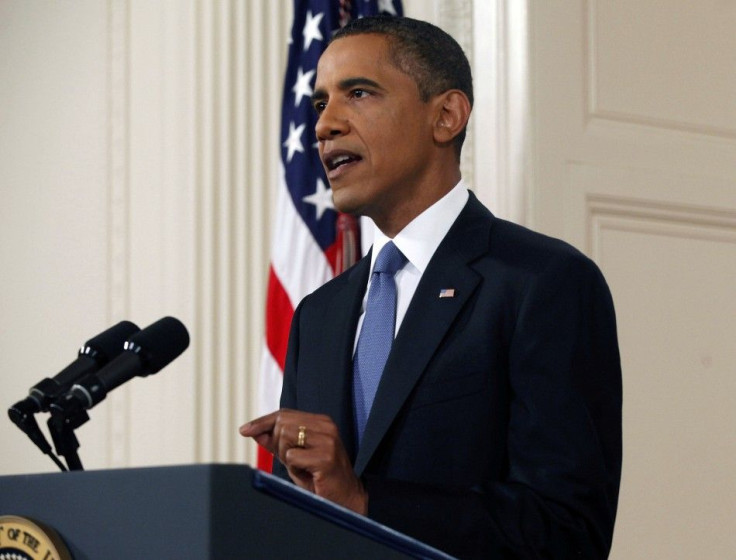Obama Calls for 'Renewed Sense of Urgency' to Balance Budget
Analysis

In a statement delivered from the White House, President Barack Obama underscored Monday that that the United States' fiscal and economic problems "are imminently solvable" and that Standard & Poor's (S&P) downgrade of the nation's credit rating from AAA to AA+ reflected doubt in the political system's willingness to act, not doubt in the nation's resources.
"Our problems are imminently solvable," Obama said. "And our credit [U.S. debt] is among the world's safest."
"The United States is still an AAA country," he added.
S&P Move: A Wake-Up Call?
Obama added that the S&P move should serve as a wake-up for congressional leaders in Washington -- specifically the new bipartisan "supercommittee" created by the passage of the U.S. debt deal act -- to cut the budget deficit long-term.
The president added that he will offer his deficit-cutting recommendations to the committee, and took time out to call, once again, for a balanced approach to deficit reduction -- one that includes "tax reform and modest adjustments to those who can afford it" as well as "adjustments to health care programs like Medicare."
On the economy, Obama reiterated that there are policies Congress can implement now to increase U.S. GDP and jobs, including extending the payroll tax holiday and extending unemployment compensation.
Political/Public Policy Analysis: Obama hit the nail on the head in identifying the chief cause of the nation's budget deficit: a lack of consensus and political will in Washington.
The hope is that the new bipartisan "supercommittee" will be able to make the difficult choices necessary to balance the budget.
That said, the new body could produce another stalemate -- and that would be the worst of all possible fiscal worlds for the United States. Even moreso in light of the S&P downgrade, institutional investors want even more action on the budget deficit.
Moreover, if the supercommitttee stalemates, it would be a function of our times. The nation would be better served by giving predominant power in Washington to either the Democrats or the Republicans, then waiting for the next election to express a referendum on that party's policies.
The current voter preference for "divided government" does not work. Voters believe it will produce an extra "check and balance," but it doesn't work out that way: It leads to gridlock.
And as the U.S. stock market and bond market are signaling, institutional investors don't like gridlock.
© Copyright IBTimes 2024. All rights reserved.





















